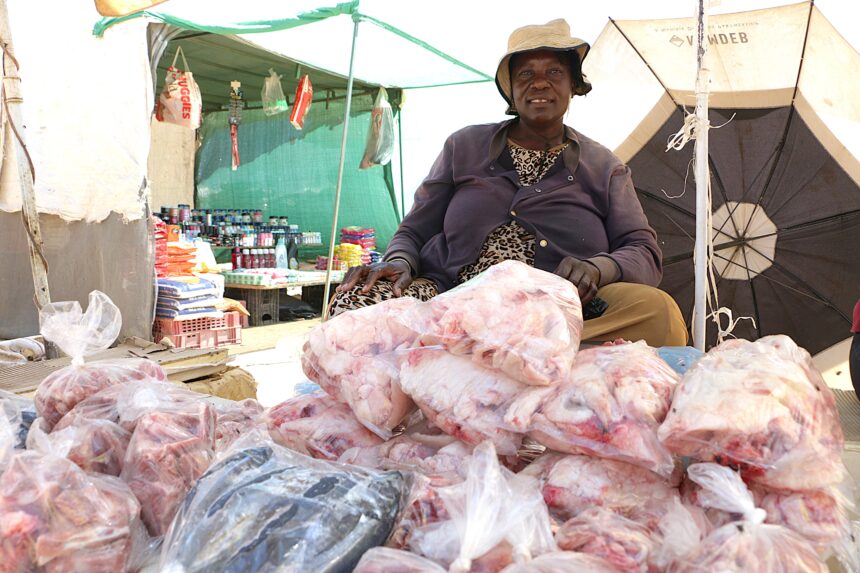Vegetable vendors at the crowded Havana four-way stop have expressed mixed feelings, and have taken campaign gospels by different political actors with a pinch of salt.
While some have expressed optimism ahead of the Presidential and National Assembly elections slated for next Wednesday, others are pessimistic that things could only get worse.
Primarily, they fear being evicted from their trading spots after the elections when politicians no longer need their all-important votes after 27 November.
Some residents expressed scepticism about voting, claiming they have not seen any benefits of the exercise since they first voted for the founding president in 1989.
However, others believe voting could turn around their fortunes for the better, including the construction of proper markets with ablution facilities and safety measures.
New Era visited the Havana informal settlement on the outskirts of the capital Windhoek this week to gauge residents’ mood ahead of next week’s elections, which are expected to separate pretenders from contenders.
Hopeless
On the day, residents shared mixed feelings, with many having participated in past elections.
Paulus Ashuulu (49) has lived in Havana for 17 years, but said he has not benefited from any development since 1994.
“I cast my first vote in the Ohangwena region in 1994. I had high hopes that we would get the better Namibia we wanted. I continued voting, but until now, there has been no change. I have no job or income to support my family. I don’t have the energy to continue voting anymore,” he stated. Ashuulu added that he has numerous reasons for not voting, one being that he is a father of six children whose unemployed mother cannot access social grants for them.
“I have tried many times to submit applications through the councillor’s office, but none of my children are registered. Why should I vote? I have a voter’s card, but trust me, I will not vote,” he stressed. Another frustrated vendor, Saara Kambandja (27), sells mangoes, tomatoes and onions. She was, albeit with reservations, optimistic that the outcome of the elections will help to address pressing issues.
“At least I will vote to bring about change, which will lead to the construction of an open market. My vote will make a difference so that we can get funding for our studies. I will make sure I vote,” Kambandja said.
She has been selling at the Havana bus stop since completing Grade 12, after learning the skills from her mother. She accused the City of Windhoek of targeting them after the elections, citing a notice to relocate residents near the road to Ongos on 17 November. “They are quiet now, but after 27 November, we will face the music. The road contractors will chase us away to complete their work. But the City is quiet, and not updating us on what will happen,” she noted.
Johanna Shilomboleni also wanted a permanent open marketplace which would be safe for business. “We want an open market with surveilance cameras and toilets, where we can sell freely. Right now, we have no toilets. We use the riverbed, or walk long distances to pay for toilet facilities,” she stated.
Shilomboleni is adamant she will vote on Wednesday in the hope of bringing change.
Tuyeimo Haufiku, who has been selling at the four-way stop for five years, said: “We need basic necessities like water, electricity and toilets here. Imagine selling fresh meat, and having to use the riverbed when nature calls.”
“It’s not safe here. Even that wig you’re wearing can disappear in minutes. Better remove it while talking to us. We need a market with cameras and secure storage facilities for our belongings. We spend our profits on private transport to come here daily,” she continued.
Adding her voice was Julia Mungondjo, a vendor for 15 years. “I’m confident that once I vote, there will be change here. There is no security, safety or toilets,” she opined. She highlighted the tight competition between local vendors and foreign nationals, who have also infiltrated the informal market.
Tjiratjiza Ngurimuete, a private shuttle driver, raised concerns about the City Police targeting them. “We assist vendors to transport their goods to prevent theft, yet the City of Windhoek issues us with fines ranging from N$1 000 to N$1 500. It’s stressful,” he said.
He added that the lack of a taxi rank beyond the four-way stop forces people to walk long, risky distances.
City
Responding to the vendors’ concerns, City spokesperson Harold Akwenye said the municipality is aware of their needs, and has developed a comprehensive masterplan for constructing markets along the road to Ongos.
“This plan was presented to vendors during a public engagement, where their input was gathered and their concerns addressed,” he added. He emphasised that the City is committed to providing a conducive trading environment, while ensuring organised urban development.
“The planned markets will provide a safe and sustainable space for vendors to conduct their businesses once the road project is completed. We encourage vendors to stay engaged with municipal channels to avoid misunderstandings,” Akwenye said.


